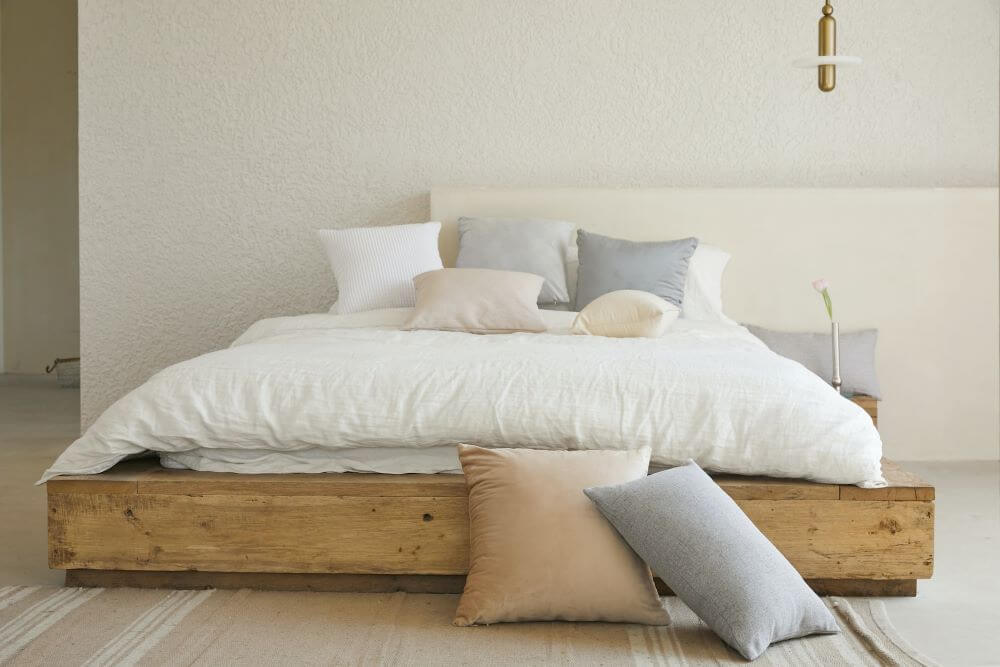
Do we really need comfy beds, black out curtains and soft pillows and duvets to help us sleep?
We often focus on the process of sleeping, room setup, blue light, exercise and diets and of course these all help. For some people going to sleep is easy, for others it takes effort, then there are those of us that wake up in the middle of the night. What is going on, why can’t we just sleep?
Like other areas of our lives such as tricking ourselves into being more powerful by doing power poses from the incredible research Amy Cuddy and her team did at Harvard. Can we do the same with sleep? Can we fake it till we make it? Can we create a habitual thought that we are great sleepers and trick ourselves into being great sleepers?
What if we created a habit to constantly programme us to be better sleepers, by affirmations and visualisation? It is worth considering that we may have inadvertently programmed ourselves over time to be poor sleepers.
The Military Method
Soldiers are trained to sleep anywhere. Imagine being in a war zone and being able to switch off and get much-needed rest, despite bombs and shells exploding in the distance, you can sleep.
The rising popularity of the military method was first reported by Sharon Ackerman and comes from the book “Relax and Win: Championship Performance.” The book details the method that was developed by army chiefs to help exhausted soldiers sleep, even in battlefield conditions. According to the book, after 6 weeks of practice, this method works for 96% of people. Why not give it a try?
- Relax your entire face, including the muscles inside your mouth.
- Drop your shoulders to release the tension and let your hands drop to the side of your body.
- Exhale and relax your chest.
- Next, relax your legs, from your thighs right down to your toes.
- Clear your mind for 10 seconds, try imagining a relaxing scene, this could be a beach somewhere, a field, or anywhere you find calming.
Once you’ve completed this full-body relaxation and emptied your mind, you should be able to fall asleep.
Buddhist Monks
Buddhist monks sleep on a hard floor and use their dress robes as a pillow, some monks even sleep up right. As humans, we are designed to sleep in extreme environments and if our ancestors could sleep in a cave, why can’t we sleep in comfortable beds?
Buddhist monks are known for their meditation and mindful practices that are integral to their daily routines. Meditation is considered to be a skill and those who practise on a regular basis are more likely to reap the benefits. A study published in 2009 (Patra & Telles) detailed the positive impact of cyclic meditation on sleep, with the subjects involved improving their objective and subjective quality of sleep after practising cyclic meditation twice a day.
Buddhist Monk, Nick Keomahavong, details how monkhood taught him how to sleep properly. He describes how the bedroom should only be used for the purpose of sleep. With only his mat and folded robe pillow, he was able to programme his mind to be still and develop the habit of effortless sleep.
Actionable Tips for Great Sleep
So, before you throw your bedroom comforts away and live in a mud hut, let’s learn what we really need for a great night’s slumber.
Believing and knowing we can sleep anywhere if we need to
Make practising positive sleep affirmations part of your routine. Such affirmations are effective before sleep because they allow us to speak to our subconscious mind. Believe and tell yourself “my mind and my body are ready to rest. I am grateful for my body, my body is relaxed”.
Understanding circadian rhythms and using light
Our body’s circadian clock reacts to light as a signal to wake up, whilst the dark is a signal to go to sleep. Increase your light exposure during the day and create a dark space during the evenings to sleep better.
Consistent bedroom routine
Maintaining a regular sleep schedule, even on weekends, will help programme your body’s internal clock. This will not only help you fall asleep easier but also helps you to wake up in the morning.
Meditation & sleep visuals
As demonstrated by both the military and Buddhist monks, emptying your busy mind can have a huge impact on your sleep. Practising daily meditation and the military method before bed can result in better sleep.
What next?
It is clear from research and the experience of others that a luxurious bed and the additional comforts are not actually necessary for sleep. Whilst the majority of us do not want to give up these comforts, we can learn from these techniques and experiences to improve our own quality of sleep.
For more information on improving your sleep, whether that’s through essential habits or useful products, visit Mooshoo to discover more, alongside other components of Health and Wellbeing.